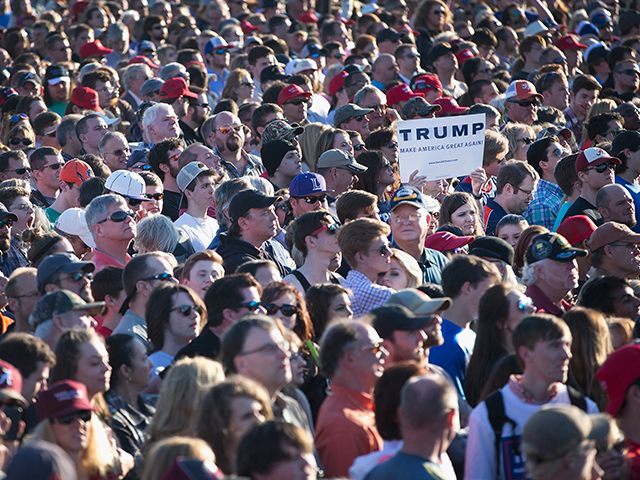Donald Trump has rode of a wave of voter frustration to the top of the Republican nomination contest, but incumbent Republican Senators and Representatives have easily turned back primary challenges from conservative outsiders.
This could very well be one of the few election cycles where no Republican incumbent loses in a primary, despite a number of challengers.
This presents something of a conundrum. Trump’s rise, and the continued viability of Texas Sen. Ted Cruz, who has also campaigned on an anti-Washington theme, suggests that voters have never been angrier against the political class in D.C. than they are today. Yet Republican legislators, some of whom have multi-decade political careers and moderate voting histories, have survived easily in this volatile political climate as the media, conservatives and small-donors have been focused on Trump.
In Alabama, conservatives mounted an aggressive challenge to three-term Rep. Martha Roby, whose voting record has alienated many conservatives. Becky Gerritson, a local Tea Party founder, attracted support from a number of national conservative and tea party organizations in her bid to unseat Roby. Even though Trump won Alabama by 20 points, Roby dispatched Gerritson by a 2-1 margin.
Alabama’s senior Senator, Richard Shelby, also easily turned back primary challengers, even though he first entered Congress during the Carter Administration.
In North Carolina, incumbent Sen. Richard Burr easily turned back a challenge from Greg Bannon, a former Senate candidate with very strong Tea Party backing. Primary elections of the U.S. House in North Carolina won’t take place until June, due to a legal challenge over district lines, but no incumbent seems to be in imminent threat at this time.
In Texas, 15 Republican incumbents were challenged in primaries on Super Tuesday. Several of these were serious challenges that attracted signficant outside interest and resources. The incumbents swept the races, however, some by overwhelming margins. Each race had its own unique circumstances, but none of the incumbents were seriously threatened in the end.
Ted Cruz, of course, won Texas by almost 20 points. His campaign, though, has also been built on an anti-Washington message. Combined, Cruz and Trump earned 70 percent of the vote in Texas. Most Republicans, then, voted for a candidate who promised to change Washington while also voting to reelect their existing Representatives.
Trump won Illinois this week by 8 points. He and Ted Cruz combined for more almost 70 percent of the vote. Republican Sen. Mark Kirk, however, won more than 70 percent of the vote against a conservative challenger. Long-term incumbent Rep. John Shimkus, who had broken his own term-limit pledge years ago, easily dispatched a conservative challenger, state Sen. Kyle McCarter, in a downstate district won by Donald Trump.
Most states haven’t yet conducted their Congressional primaries, as only a handful tie these elections to the Presidential contests. That said, it is somewhat baffling that the wave of voter anger unleashed during the primary campaign has yet to retire any incumbent Republicans. One would normally imagine that this voter anger would show itself across the ballot, rather than reserve itself to the Presidential contest.
It is possible, then, that the Trump phenomenon is a singular political event, with little impact further down the ballot. Trump, perhaps, is such a unique outsider personality that voters are attracted to him individually, rather than an overall message. It seems they believe Trump, himself, can shake up Washington rather than use their votes to change their representatives there.
If so, then Republicans’ fears of how Trump would impact down-ballot races may be overblown. Trump, to be sure, currently looks to be a far weaker general election candidate than any of his rivals. In hypothetical general election polls, Trump runs considerably behind his Republican rivals in match-up against Hillary Clinton.
Obviously, the general election is several months away. The polls will no doubt change as a result of the election campaign. Still, Trump’s lack of coattails in Republican primary contests suggests that incumbent Republicans will be able to run campaigns seperate from the Presidential battle.
After all, incumbent Republicans have easily dispatched primary challengers even while the electorate engages in a primal scream all around them. If they are immune to an electorate where around half the voters say they feel “betrayed” by Republicans in Washington, they can probably withstand whatever forces are aligned against them in the general election.
If the Trump phenomenon teaches us anything, it is that the power of political incumbency really is one of the strongest forces in the universe.

COMMENTS
Please let us know if you're having issues with commenting.